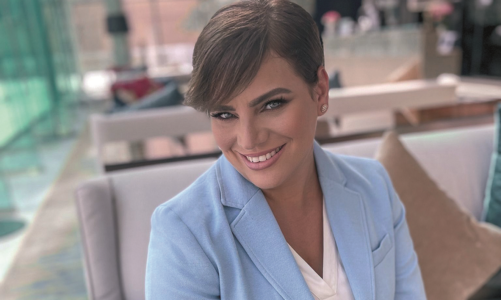Ondřej Kepka has had many acting roles, both as a child and in maturity. He is a graduate of the Academy
of Performing Arts in Prague (AMU), as well as a moderator, scriptwriter and director. His passion is the static
capturing of life — photography. Since 2017, he has been the President of the Actors’ Association, which
presents the Thalia Theatre Awards.
Today’s world reminds me of Theatrum Mundi, where people are bad actors and good actors. What do you think is the role of an actor in today’s society?
I think that, unfortunately, nowadays, an actor is seen primarily as someone who is supposed to entertain. Nothing against comedy or entertainment. It is undoubtedly one of the tasks of good theatre, film and, of course, the actors. Actors tend to be entertaining, but the main real mission of the acting profession, which is to transpose the author’s idea to the audience, is quite neglected. What I mean by this is that the actor, as a creative worker, is trained and ducated all his life to be able to explain and interpret the sometimes very complex ideas of the author, to learn how to communicate them to the audience and to be able to communicate with the audience. I am referring to the actor’s mission to be a bridge between the author and the audience. This is no longer just about entertainment but a completely irreplaceable and creative position. Unfortunately, this position of the actor is sometimes completely neglected today, even though actors were often — especially in Czech and Czechoslovak history — the initiators of social movements, infl uencing political events precisely because they could communicate well with people, because they could speak to the nation.
The Actors’ Association certainly has its mission and contributes to creative activity in an age that, to quote Jan Neruda, can be summed up simply: „Time has torn the curtain — and the world has changed!“ Do we see it the same way?
The basic message of the Actors’ Association as a professional and trade union chamber is to contribute to the professionalisation and improvement of the quality of acting in the broad sense of the word. The members of the Actors’ Association are not only drama actors but also opera singers, ballet performers, dancers and many professional performers. We aim to draw attention to quality, tradition and professionalism.
The Thalia Awards — are they just awards for the professional performances of actors, or do they also express society’s relationship to national culture?
The priority of the Thalia Awards is to recognise the best professional displays of performers on stage. As you know, the Thalia Awards are given in a number of categories. Today, we have six. So, the main priority is professionalism — being in tune with the role and being able to interpret the role on stage. The Thalia Awards are a purely interpretive award, not an award for authors. That is where it differs from other theatre prizes, for example. The best stage performance should also express society’s relationship to national culture. So, logically, many good performances also reflect the connection to cultural awareness. Still, there are roles and tasks that, by the principle of their assignment, cannot somehow express this theme. So, I would say that it is not quite directly proportional here. It is somewhat independent.
Of course, we evaluate professional performance, which can be a negative role, even in the role of a very uncultured character, a character that is not nationally conscious… But if we suppose that a quality performance generally raises a nation‘s cultural level then yes, of course, quality performances raise a nation‘s cultural level. That is a Solomonic answer from me. In addition, I would say that the Thalia Awards do not favour current modern trends in theatre writing and directing. You can win a Thalia for a performance in a classic production of Hamlet, for example, in Jihlava, or a modern character in a trendy play, for instance, in Ostrava Arena.
The Thalia Awards are all grown up. What has been their growth, and what development do you plan?
The Thalia Awards have naturally evolved over their nearly 30-year age. The awards are changing, just as our theatre is changing. So recently, for example, we have added an award for alternative theatre and puppet theatre. We have established the Czech Academy of Theatre Makers, a complete rarity. Automatically, Thalia winners and other prominent personalities are members of the Academy, which then votes and selects the winners of its special Thalia Award of the Czech Academy of Theatre Makers. This prize has recently been awarded to Zdeněk Svěrák and Jan Kačer. The winner of this prize is quite rarely not a classical performer, but perhaps an author, director or dramatic adviser. The mission of this special Thalia Prize is, above all, that it should be a distinctive personality who takes the world of theatre — and, therefore, the world around us — signifi cantly further. I think this year’s winner will be a big surprise. We will be honouring a European artistic personality in a completely unexpected profession.
Thank you for the interview.




